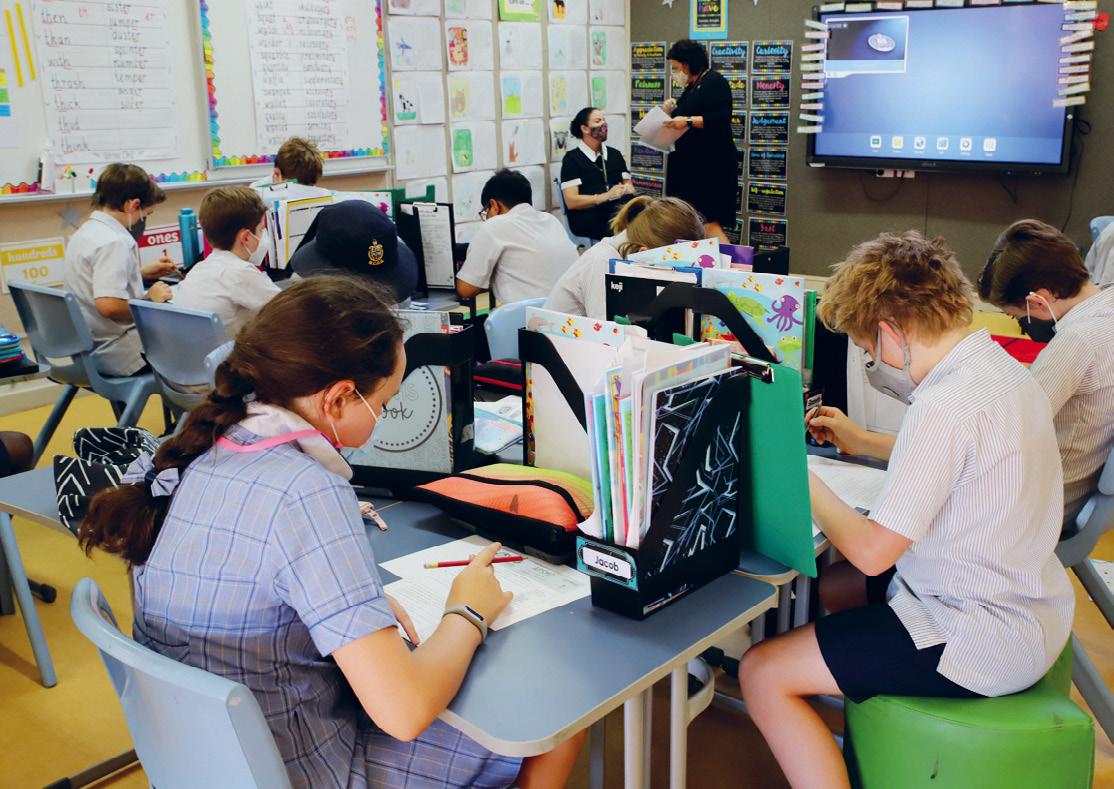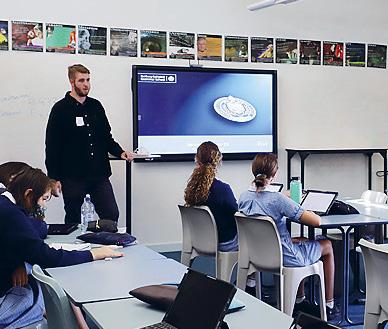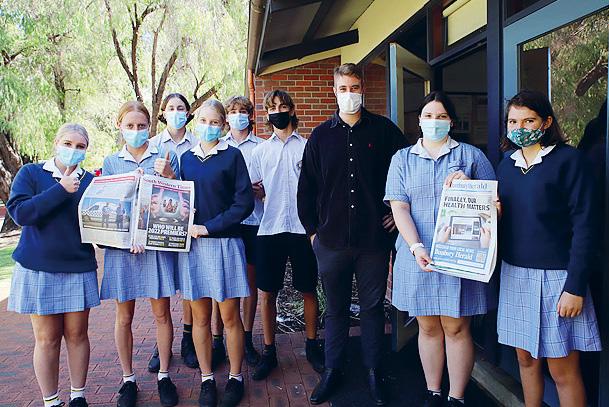
4 minute read
VET
MathsMania!
In Term 1, students from Years 3-6 began their journey as part of our Primary School Maths Olympiad and Maths Explorer teams. They participated in rigorous mathematical competitions designed to challenge and extend higher order thinking. Mrs Rachel Cook, an exceptional and highly effective teacher, facilitated both competitions.
Advertisement
Students from Years 3 and 4 participated in the Maths Explorer program. They worked collaboratively in pairs or small groups to find solutions to mathematical problems. The competition aims to stimulate enthusiasm and enjoyment of mathematics and helps students to prepare for more challenging competitions in the future. Students from Years 4, 5 and 6 competed in the Maths Olympiad, a more rigorous and challenging competition. It is completed on an individual basis with students competing against one another across Australasia. It introduces students to more complex mathematical concepts and strengthens students’ mathematical intuition. Both Maths Explorer and Maths Olympiad run every six weeks until mid-term 3, so it is an opportunity for ongoing extension. After consultation with the participants, both competitions proved successful.


Mrs Larissa Marchant :: Deputy Head of Primary
Sarah Florance, Year 3 ::
Other people could help me understand the questions. We got lots of different ideas working in a group.
Kobe Warren, Year 4 ::
It was a good experience that was harder than I am used to, but I enjoyed it. It was an academic opportunity and a nice chance to try out harder questions.
Wolfe Kidd, Year 5 ::
Maths Olympiad was quite hard, and you really had to think about every question. You should try it if you think you have what it takes, and you are ready for a challenge.
Jake Ognenis, Year 5 ::
I really loved Maths Olympiad. It was a challenge and it allowed me to learn new skills that will help me later.
Jensen Barbour, Year 6 ::
Maths Olympiad was a good challenge and a way to problem solve and practice for future tests.
News? What’s in the
This year, for the first time, a group of Year 10 students have been studying English with a focus on ‘What’s in the News’.
The classroom has been converted into a ‘newsroom’. This has given students the opportunity to consider behindthe-scenes life of a news crew. Highlights have been reporting on real and even some ‘fake news’. The on-the-spot reports from the petrol station, COVID hotspots and even a commentary of a regional basketball final have been fun to produce but even more fun to mark.
We have learnt the alien discourse of the newsroom and now know what news jargon is, for example, a “noddy” is apparently not simply Big Ears’ best friend. Another highlight was the visit from Alumni and successful local journalist, Jackson Barrett. Here is an article written about his visit by student, Alexander Clements.
JOURNALIST INSPIRES OUR NEWSROOM
On a Friday in March, local journalist Jackson Barrett visited our class to enlighten us about his occupation. Jackson graduated from Bunbury Cathedral Grammar School in 2016 and then went to university in Perth. He says university is not completely a necessity for the job but it taught him lots during his time there. After university, he began working at The South Western Times, a regional newspaper located in Bunbury. He also works as a commentator at sporting games locally. He described what a working week looked like for him and explained it being long and hard hours, saying “You don’t get into journalism for the money.” As The South Western Times comes out on a Thursday, everything leads up to that day. The cycle begins with less stress on Thursday building up to the more stressful pre-circulation day on Wednesday. When asked about his most influential case so far, he told us about his part in the disappearance of Cleo Smith, which had the whole world on the end of their seats earlier this year. He explained that he got a call from a Perth editor from The West Australian newspaper requesting for him and another journalist to cover the story. So, they flew out to Carnarvon to go to Quobba Station and report on the disappearance. He spoke about how interesting the job was, “You have no clue what you are going to be doing and then this call came out of the blue and completely changed the next two weeks,” said Jackson. He spoke of a time he remembers that will stand out in his career for the rest of his life. He and another reporter were at the blowholes campsite camped in a hire car listening to Taylor Swift eating pizza, while listening to the rather noisy blowholes very early in the morning. This proved to be a surreal experience for Jackson, camping out at the scene of this remarkable event, made even more remarkable by the successful discovery of young Cleo. In total his visit was excellent for those who were privileged to hear his story and it completely allowed us to understand journalists at a new level. We wish Jackson luck with his future endeavours and hope to see his work around.
Alexander Clements :: Year 10












